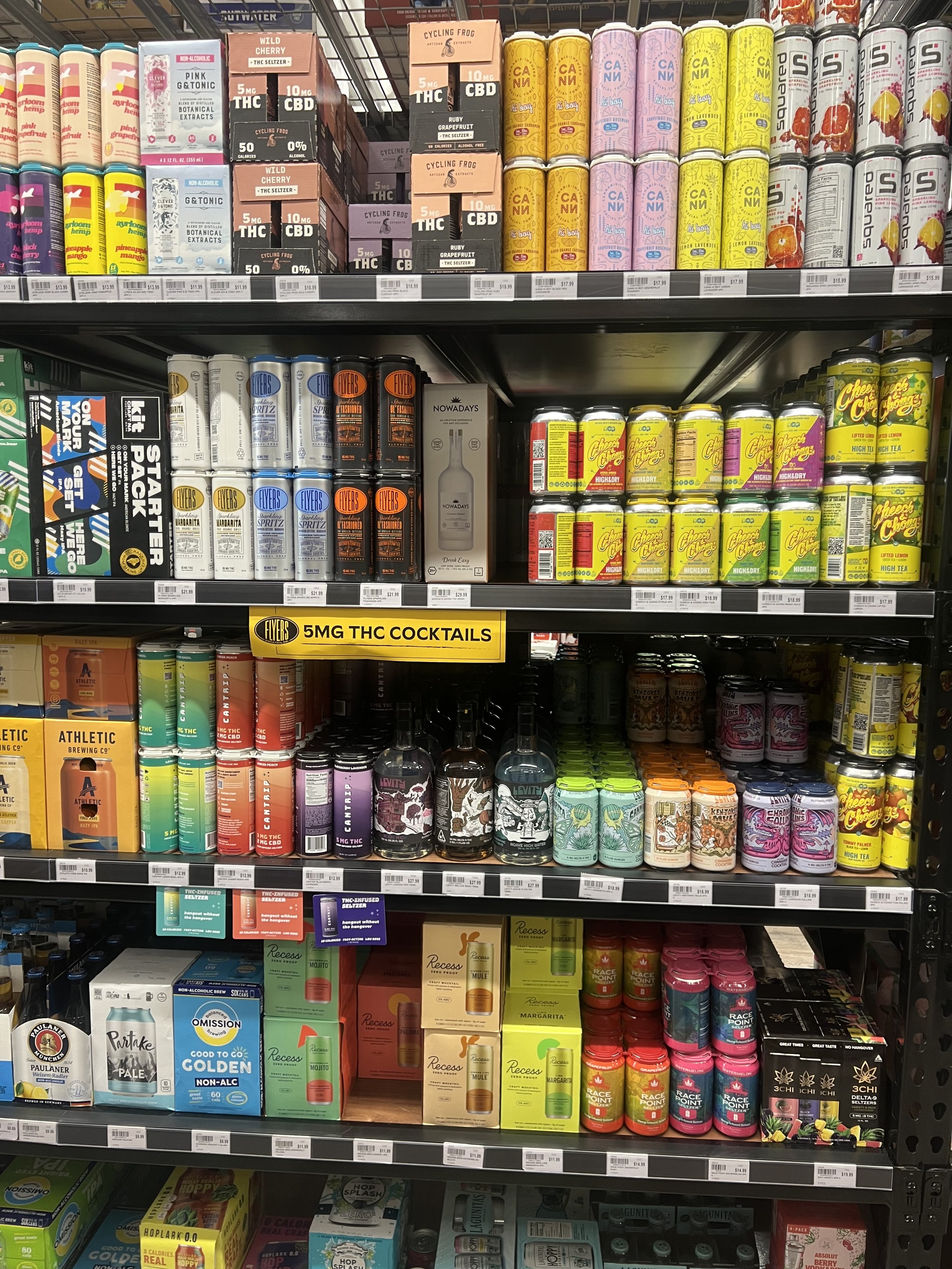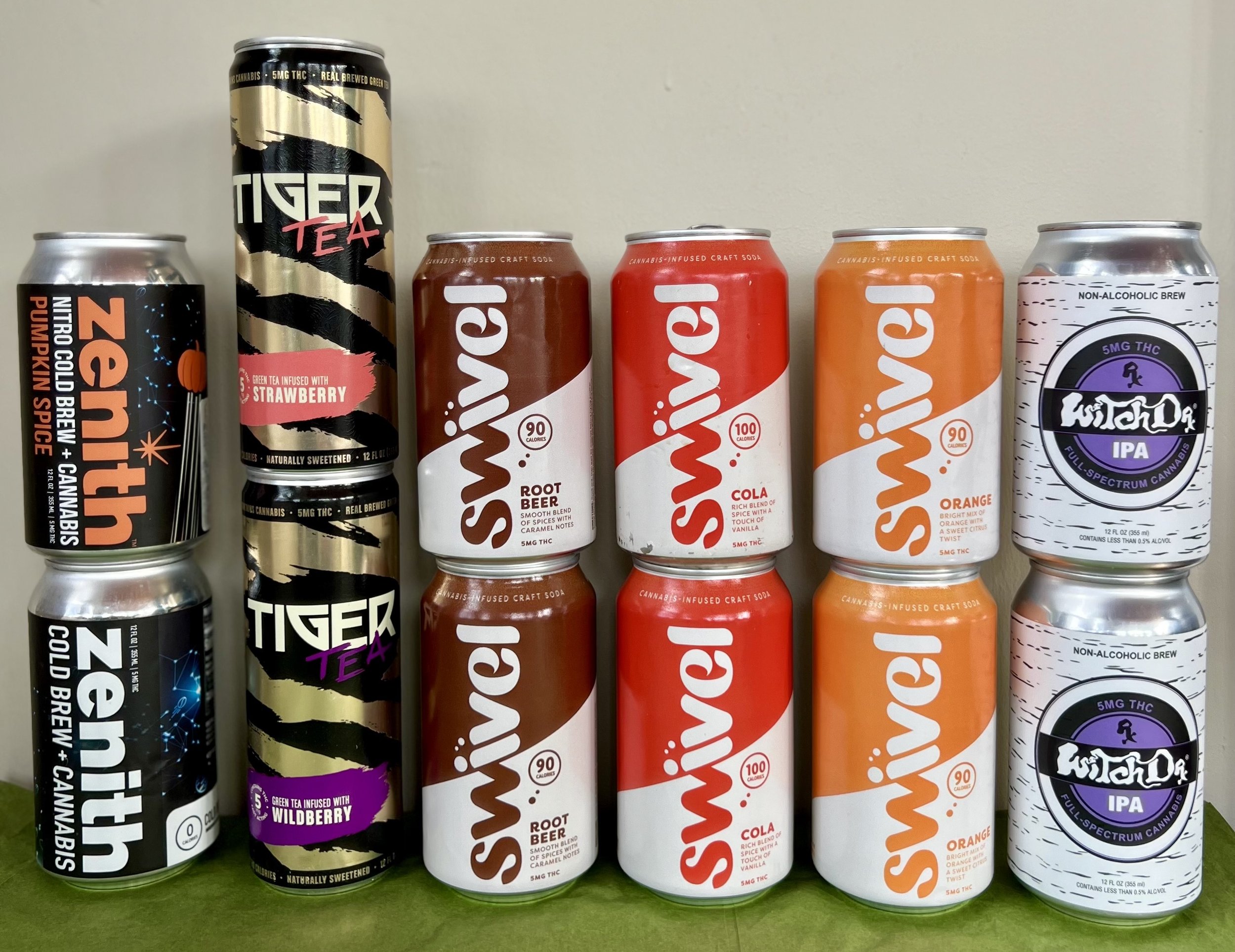THC Drinks in Liquor Stores?!?! Whaaaaat!
If you are a last minute shopper like us, the new placement of hemp-derived THC beverages across liquor stores will satisfy your THC-beverage craving faster than that 2-day shipping!
HOW DO DISPENSARIES SELL CANNABIS?
In order to sell any products that contain the cannabis plant (flower, vapes, edibles, drinks, etc), the dispensary needs a license to do so. Similarly to a liquor license that allows a business to sell alcohol according to laws and code, the same thing is true for a dispensary. For cannabis, we have the Cannabis Control Commission (CCC), that “regulates licensees that operate in the legal adult- and medical-use marijuana markets in Massachusetts.” For a dispensary, the application fee can be as high as $1,500 and the license fee as high as $10,000— for a grand total of $11,500. And that doesn’t even include the real estate, employee salaries, marketing budget, or cannabis products. So, if you want to start a dispensary in Massachusetts, you are looking at somewhere around $641,500. Wow— you can see how that adds up quickly!
SO, HOW IS THC IN LIQUOR STORES POSSIBLE?
Since all of the products that are at these liquor stores are hemp-derived, rather than cannabis derived, they are federally legal and contain less than 0.3% of THC by dry weight. In other words, you need to grow and process a lot more of the hemp plant to get 5mg of THC in your beverage than you do for cannabis. Since the Department of Agricultural Resources does not regulate the retail market, the regulations for selling these beverages at liquor stores is a bit hazy. As for the CCC, they don’t oversee hemp products either. While the Department of Agricultural Resources claims that adding any hemp or CBD to food is prohibited, they don’t say anything about beverages. As for liquor stores in Massachusetts, they are deciding to take on these products and sell them at their own risk since there is a lack of clear laws.
WHAT ABOUT THE TAXES?
For cannabis, the standard Massachusetts sales tax applies at 6.25%, and a 10.75% excise tax is imposed on transfers of marijuana and marijuana products from a retailer. So when you are going into a dispensary to buy a beverage, the retail price is anywhere from $5 - $9 per can, plus with tax one drink comes out to be $12 - $16 per can. Crazy!
True that the process of turning the plant to an oil, then an oil to a water-soluble substance to mix into a drink is expensive, so that is reflected in its retail price. But with hemp, the price to purchase a lot of the product in bulk is a lot cheaper! When looking at the taxing, since hemp is not regulated by the CCC or the Alcoholic Beverages Control Commission (ABCC) there is no high taxing for beverage products specifically. If hemp products are used for medicinal purposes, they are exempt from sales and use tax. But, talks of the recent overload of hemp beverages in the liquor space might be changing that soon so they’re on equal footing!
WHAT NOW?
The recent surge in THC-drinks being sold in chain liquor stores across Massachusetts, Minnesota and a dozen other states over the past few months is only a sneak peek into how the future will look. Where non-alcoholic alternatives are increasing in popularity and THC products are becoming normalized, the side-by-side of alcohol and THC beverages will grow.
As efficiency in manufacturing and distribution in hemp are far greater than each state requiring a separate canning facility for cannabis, the money is moving towards hemp for price, convenience, availability and scalability. So long as products are verified and tested, there seems like a monumental shift occurring across the US. The consumer is the ultimate decision maker, and they’re being heard from coast to coast!



